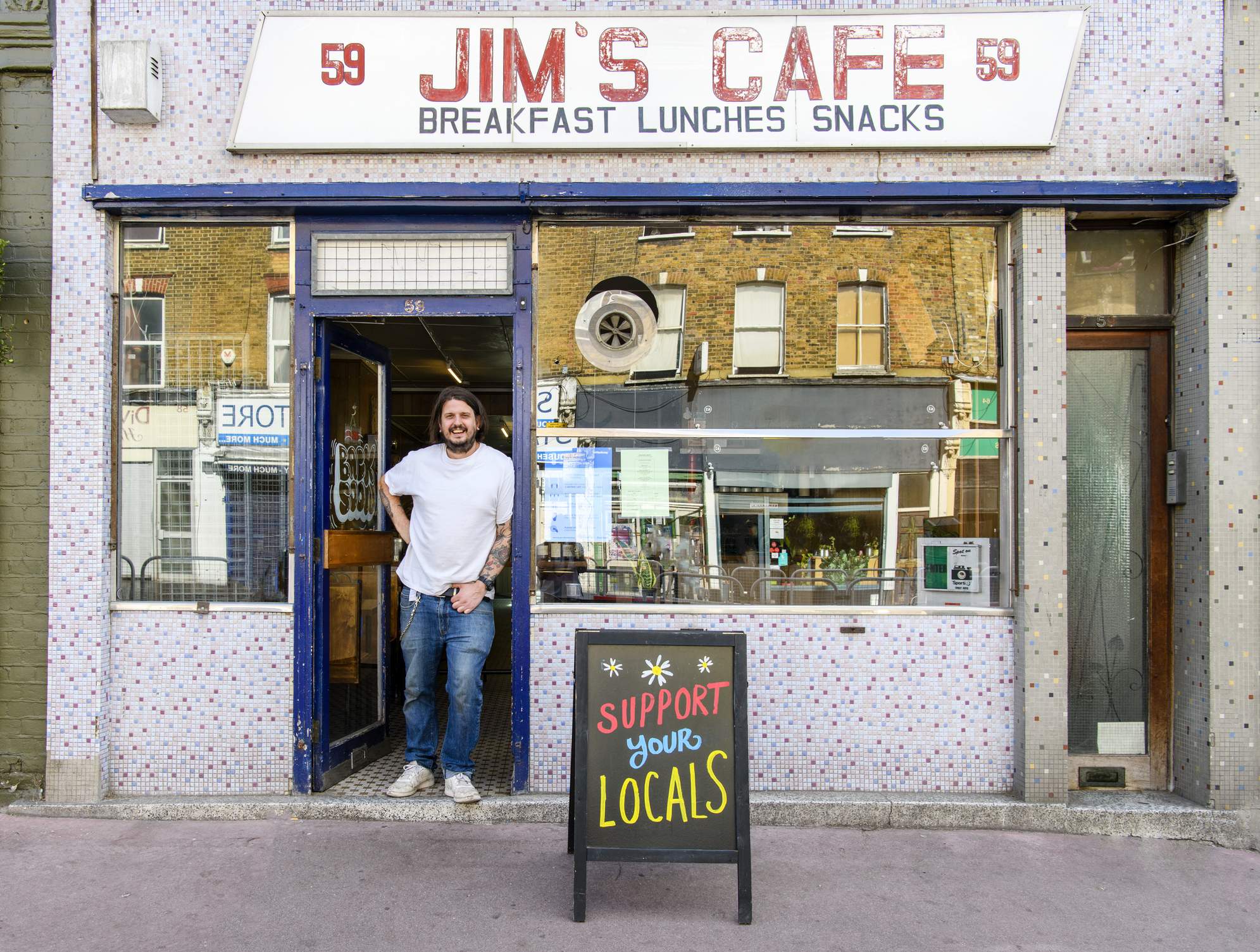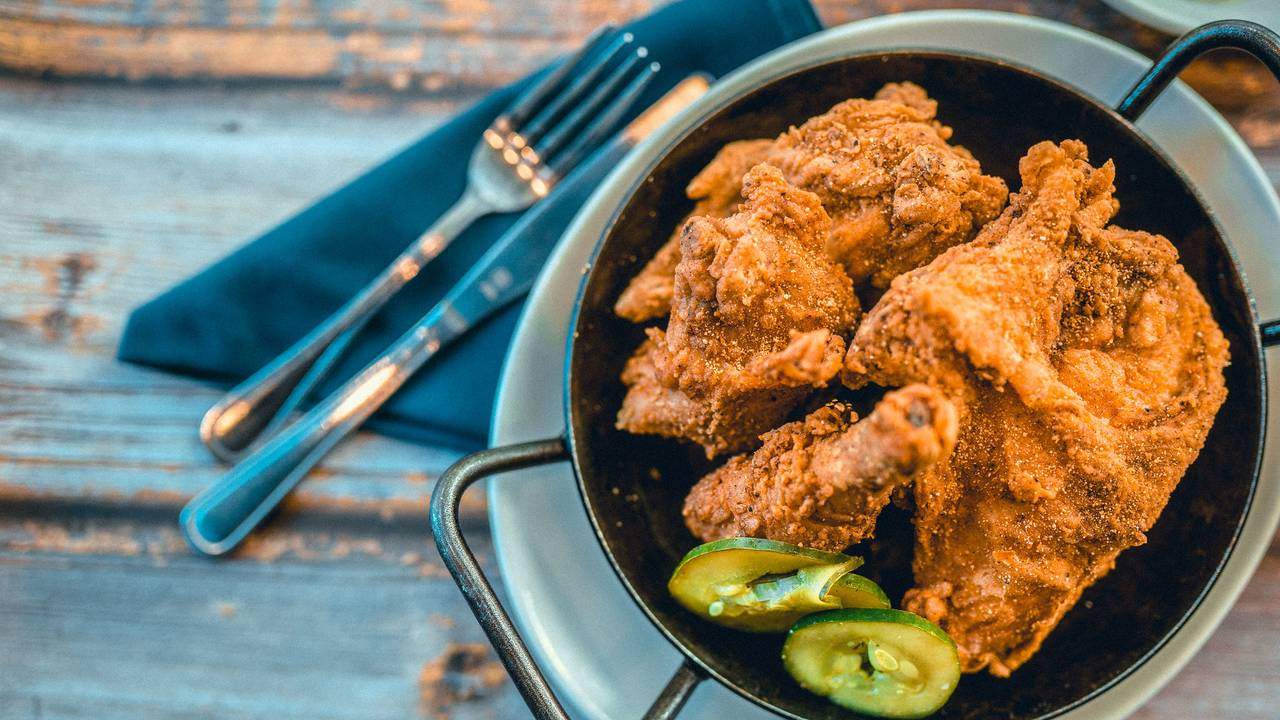Restaurant names really matter. Choosing a name is crucial for restaurant owners before opening the doors. A name shapes first impressions and influences public opinion.
Restaurant names may seem simple, but the best ones are carefully considered and vetted before a new business is officially christened.
Here’s what you need to know about names for restaurants if you’re trying to choose one:
Quick links
Good names vs bad names
Starting points when choosing a name
10 steps to find the right restaurant name
There’s a fine line between good and bad names
The difference between restaurant names that work and ones that don’t can be subtle. Here’s how to get a sense if you’re heading in the right direction with your ideas.
What’s a good restaurant name?
The truth is it depends. The perfect name for one restaurant is often totally wrong for another. The best names are highly specific and evoke a feeling or impression that accurately conveys what a restaurant is all about.
What’s a bad restaurant name?
Bad restaurant names abound. If you want to use humor, do it with a deft hand. Few people are as funny as they think they are.
Remember that any word or phrase that is similar to, sounds like, or rhymes with anything remotely off-color will be construed that way by someone. Think like a teenager to check this. Also look closely for any possible cultural insensitivities. Ask people who belong to any culture or heritage you reference in the name, no matter how obliquely. Something intended to be funny might actually be hurtful.

Starting points when choosing a restaurant name
Here are some big-picture things to get clear on that will help you come up with the ideal restaurant name for your project:
- Restaurants concept
Have the restaurant’s concept finalized before turning your attention to possible names. Any shift in direction during the planning process can affect the name choice. Plus, the concept itself might suggest a name or part of the name. Think of the many restaurant names that include words that reference the core concept: Morton’s the Steakhouse, Virgil’s Real Barbecue, or Ocean Prime. - Values
The company values could come into play, especially if you intend to run a mission-driven restaurant. Cafe Gratitude and True Food Kitchen have both taken this approach. If there’s a value at the foundation of your restaurant, it can be powerful to have the name reflect that. - The vision for the future
The restaurant’s name needs to be durable. The last thing you want is a name that no longer fits a few years down the line. So, picture the restaurant in 5 years and 10 years. Every restaurant has minor changes over the years, but the best restaurant names can stand the test of time. - The guests
Owners should have a pretty clear picture of who the future guests will be. If it’s a little hazy at the very beginning, choosing a location will bring it into sharper focus. Imagine how a name will resonate (or not) with these people. Know the approximate ages of future guests.
In a downtown neighborhood, it could include both early career office workers and retired empty nesters. In a residential area, you will likely want to consider families. Pick a name that feels right for your future regulars.

10 steps to find the right restaurant name
Here are some concrete steps to take when it’s time to get serious about a name.
1. Play word association
List 100 words that come to mind when you think of the concept. Don’t overthink it. Nouns and adjectives are likely to be most helpful. Scan the list over and pick 5 to 10 words that jump out.
Use an online word tool to find not only synonyms but also similar and related words. Don’t expect the perfect name to emerge right away. Keep collecting inspiration and creating possible options. Naming is a process.
2. Look to your own name
Melba’s restaurant in New York is named after its owner, Melba Wilson. Using your full name, first name, or last name as the restaurant’s name is a legitimate naming strategy that works. You could also look to family names for ideas: Bud & Marilyn’s in Philadelphia is named after the chef-owner’s grandparents.
3. Consider location
Incorporate the address number, street, city, or state name. Rooftop at 25 Lusk in San Francisco uses the address and setting in its name. If the restaurant is moving into a historic building, you can draw on the past for a name. Stock Hill nods to Kansas City’s history as a hub of livestock trading and the fact that it’s located in the former Kansas City Board of Trade building.
4. Brainstorm puns
Puns are often cited as some of the worst restaurant names. But they can sometimes work for certain places if the tone is exactly right. Bread Zeppelin, a chain that serves salads in hollowed out baguettes, has many fans. And it would be hard not to love Grillenium Falcon, a now-closed food truck in Arkansas that served gourmet grilled cheese. Just tread lightly and make sure your pun works.
5. Make it rhyme
Research consistently shows that rhymes help people remember things. This includes restaurant names. Brooklyn’s Pies and Thighs is an iconic example. Again, you need to consider the tone of the restaurant. A whimsical rhyming phrase is unlikely to work for a serious, fine dining restaurant.
6. Try a cultural reference
Depending on the concept, it might make sense to honor your favorite work of art or culture. Aesop’s Table in Saint Paul, Minnesota, pays tribute to classic Greek fables with its name. And Bluebeard in Indianapolis takes its name from Kurt Vonnegurt’s novel.
7. Seek simplicity
Sometimes less is more. A one-word restaurant name can be arresting, intriguing, and memorable. Think: Boka in Chicago, Uchi in Austin, and Husk in Charleston. Once you have 3 to 5 name options you love, it’s time to put them through their paces. Now feedback from the outside world is needed to make a final decision.
8. Check the name isn’t already taken
Take the following steps to ensure your choice is fair game:
-
- Start with a simple Google search
- Check the Better Business Bureau
- Use the US patent office’s trademark search function
- Search social media platforms
9. Request feedback
A simple and effective litmus test is to ask three strangers in a coffee shop to respond to the name options. If they “get” the restaurant quickly and they seem to like the name, that’s great. If there’s confusion or aversion, that’s a red flag.
Talk to honest friends and family members. They’ve probably heard you talk a lot about it already, but present them with your final candidates and ask for unfiltered feedback. For more unbiased opinions, use an online tool like Google Forms or SurveyMonkey to poll people about the name options. Simply ask which one they like best out of 3 to 5 options.
10. Try a name generator
Even with all these ideas and tips, it’s possible to experience a creative block when it comes to restaurant names. Play around with these name generators to get the ideas flowing again:
And if all else fails, refer back to this article with fresh eyes and look at this list of more than 300 creative restaurant names for even more ideas. You can’t force inspiration to strike, but you can help it along. In time you’ll hit on the perfect restaurant name you need.




